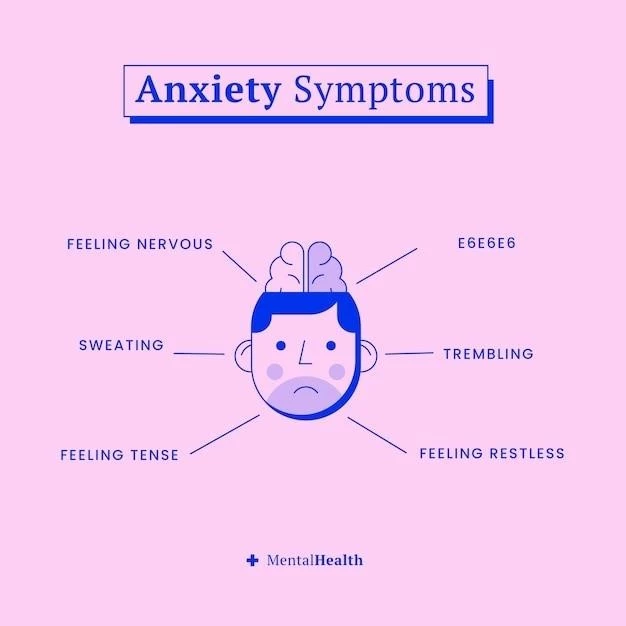Causes of Amnesia
Causes of Amnesia
Types of Amnesia
Types of amnesia include retrograde‚ anterograde‚ transient global‚ and post-traumatic amnesia. Each type has distinct characteristics and underlying causes‚ contributing to memory impairment in different ways.
Brain Injuries
Brain injuries‚ such as concussions‚ contusions‚ or penetrating injuries‚ can lead to amnesia. The trauma to the brain can disrupt the normal functioning of memory processes‚ impacting both short-term and long-term memory retention.
Neurodegenerative Diseases
Neurodegenerative diseases like Alzheimer’s‚ Parkinson’s‚ or Huntington’s can cause progressive memory loss and cognitive decline‚ leading to amnesia. These conditions affect the brain’s structure and function‚ impairing memory formation and recall over time.
Symptoms of Lacunar Stroke
Lacunar stroke symptoms⁚
Sudden Weakness
Symptoms of lacunar stroke may include sudden weakness or numbness in the face‚ arm‚ or leg on one side of the body. This weakness may be accompanied by difficulty in speaking or understanding speech‚ indicating a potential stroke.
Difficulty Speaking or Understanding Speech
Lacunar stroke symptoms may involve difficulty speaking or understanding speech‚ known as aphasia. This communication impairment can be a significant sign of a lacunar stroke‚ requiring immediate medical attention and intervention to minimize the impact.
Trouble Walking
Lacunar stroke can manifest with trouble walking‚ coordination difficulties‚ or a sudden loss of balance. These motor function issues may indicate damage to specific areas of the brain‚ affecting mobility and requiring rehabilitation to regain stability and movement.
Treatment for Amnesia
Treatment options⁚
Cognitive Rehabilitation Therapy
Cognitive rehabilitation therapy focuses on improving memory‚ attention‚ and problem-solving skills through various exercises and techniques. This therapy aims to enhance cognitive functions and daily living abilities in individuals experiencing amnesia.
Medications
Medications prescribed for amnesia may include cholinesterase inhibitors to improve memory or antidepressants to address related mood changes. These medications aim to manage symptoms and support cognitive function in individuals with memory impairments.
Lifestyle Changes
Implementing lifestyle changes such as a balanced diet‚ regular exercise‚ adequate sleep‚ and mental stimulation can support cognitive health and potentially improve memory function in individuals with amnesia. These lifestyle adjustments play a crucial role in overall well-being and memory management.
Prevention of Lacunar Stroke
Prevention strategies⁚
Managing High Blood Pressure
Controlling high blood pressure through lifestyle modifications and medication can significantly reduce the risk of lacunar stroke. Regular blood pressure monitoring and adherence to treatment plans are essential in preventing vascular damage that can lead to stroke.
Healthy Diet and Exercise
Adopting a healthy diet rich in fruits‚ vegetables‚ whole grains‚ and lean proteins‚ combined with regular exercise‚ can promote cardiovascular health and reduce the risk of lacunar stroke. Maintaining a healthy weight and staying physically active play crucial roles in stroke prevention.
Avoiding Smoking and Excessive Alcohol Consumption
Avoiding smoking and limiting alcohol intake can help reduce the risk of lacunar stroke. Tobacco and excessive alcohol consumption are linked to vascular damage and increased stroke risk‚ making lifestyle changes in these areas crucial for stroke prevention.

Memory Loss and Amnesia
Understanding memory impairment⁚
Differences Between Normal Memory Loss and Amnesia
Normal memory loss often involves minor forgetfulness that does not significantly impact daily life‚ while amnesia results in profound memory impairment affecting various aspects of cognition and functioning. Understanding these distinctions is crucial in evaluating memory-related concerns.
Impact on Daily Life
Amnesia can significantly impact daily life by affecting memory formation‚ retention‚ and recall‚ leading to challenges in tasks requiring recollection of information. Individuals may struggle with work‚ relationships‚ and self-care due to memory deficits‚ highlighting the profound impact of amnesia on daily functioning.
Coping Strategies
Implementing coping strategies such as using memory aids‚ maintaining routines‚ and seeking social support can help individuals with amnesia navigate daily challenges. These strategies can enhance memory management‚ improve quality of life‚ and mitigate the impact of memory difficulties on daily activities.
Effects of Lacunar Stroke
Lacunar stroke impact⁚
Motor Function Impairment
Lacunar stroke may lead to motor function impairment‚ causing weakness or paralysis in specific body parts. This can result in difficulties with mobility‚ coordination‚ and performing daily tasks independently‚ requiring intervention and rehabilitation to regain motor skills.
Cognitive Decline
Lacunar stroke can result in cognitive decline‚ impacting memory‚ attention‚ and problem-solving abilities. Individuals may experience difficulties with reasoning‚ decision-making‚ and processing information‚ necessitating cognitive support and strategies to manage cognitive changes effectively.
Emotional Changes
Lacunar stroke may trigger emotional changes such as depression‚ anxiety‚ or mood swings. Managing emotional well-being is crucial for individuals post-stroke to cope with these changes effectively and promote holistic recovery alongside physical rehabilitation.
Diagnosing Amnesia
Diagnostic process⁚
Medical History and Physical Examination
Diagnosing amnesia involves reviewing medical history and conducting a physical examination to assess cognitive function and identify underlying conditions or causes contributing to memory loss. This initial evaluation provides insights for further diagnostic tests and treatment planning.
Neurological Tests
Neurological tests such as MRI‚ CT scans‚ and EEG may be conducted to evaluate brain structure and activity‚ helping to pinpoint areas of damage or abnormalities that could be linked to amnesia. These tests aid in diagnosing underlying neurological conditions affecting memory.
Imaging Studies
Imaging studies like MRI‚ CT scans‚ and PET scans are utilized to observe brain structures and detect abnormalities that could cause amnesia. These imaging techniques provide detailed insights into brain function and potential sources of memory impairment‚ aiding in accurate diagnosis and treatment planning.
Recovery from Lacunar Stroke
Rehabilitation process⁚
Physical Therapy
Physical therapy plays a vital role in the recovery process post-lacunar stroke by focusing on improving mobility‚ strength‚ and coordination. Through tailored exercises and techniques‚ physical therapy aims to restore motor function and enhance independence in daily activities for individuals recovering from a stroke.
Speech Therapy
Speech therapy aids in the recovery from a lacunar stroke by targeting communication difficulties such as aphasia or dysarthria. Therapists utilize exercises to improve speech‚ language‚ and swallowing functions‚ supporting individuals in regaining effective communication skills and overcoming speech impairments post-stroke.
Support Groups and Counseling
Engaging in support groups and counseling post-lacunar stroke can provide emotional support‚ coping strategies‚ and a sense of community. These resources offer individuals opportunities to share experiences‚ learn from others‚ and receive guidance in navigating the emotional and psychological challenges that may arise during the recovery process.
